#NEOPAN-F
Explore tagged Tumblr posts
Video
memories (3926)B682 by soyokaze ojisan (そよ風) Via Flickr: Olympus M-1 ZUIKO 21mm/f3.5 NEOPAN-F ASA80 パンド-ル
#Japan#city#Street#people#mono#Monochrome#BW#blackandwhite#analogue#analog#OLYMPUS#M-1#21mm#film#FUJIFILM#NEOPAN-F#1970s#昭和#memories#dog#flickr
15 notes
·
View notes
Text
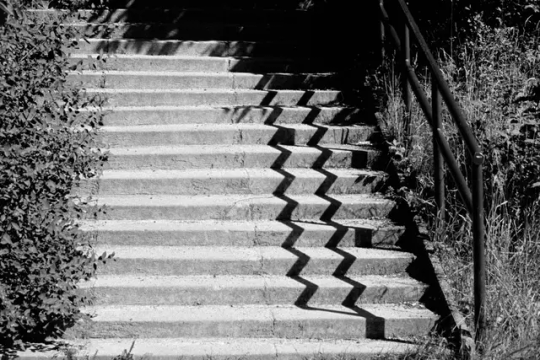
#Minolta XG-M#Minolta MD Rokkor 50mm f/1.4#Fuji Neopan Acros II 100#Analog Photography#Film is Not Dead#B&W#Black and White#film#film photography#analog#original photography#photograpers on tumblr
4 notes
·
View notes
Text

patrickjoust | flickr | tumblr | IG | prints for sale
…
Mamiya C330 S and Sekor 80mm f/2.8
Fujifilm Neopan 100 Acros developed in Xtol (1:1)
140 notes
·
View notes
Text










My Town.
Zenza BRONICA S2A , NIKKOR-P.C 75mm f/2.8
FUJIFILM NEOPAN ACROS100
・
もうこの辺で「あがり」にしたいです(笑
#zenza bronica#nikkor#filmcamera#medium format#120film#filmphotography#original photographers#photographers on tumblr
26 notes
·
View notes
Photo
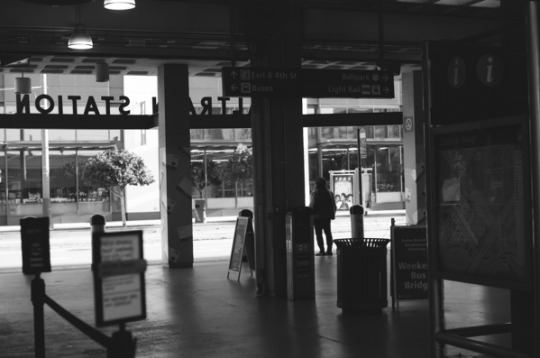

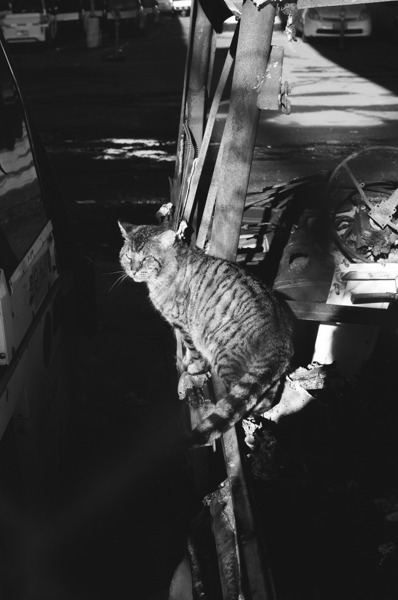
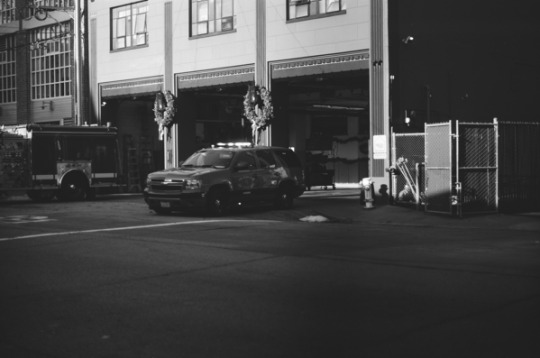
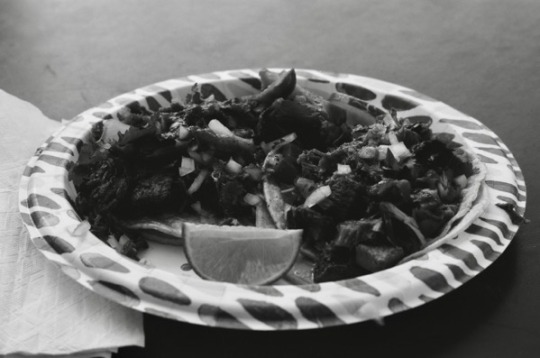
Being an “elder millennial” or “Xelennial” or whatever label you want to call someone born in the 80s that got to play the original Oregon Trail, I got to see a lot of technological transitions. Growing up, we had film cameras. Point and shoots, mainly, with some oddballs here and there (remember those cameras that were flat and long?). At some point while I was a teenager I was gifted a used Fuji STX-2 and I became the family photographer. From that point forward I took more photos than was in them. That camera, sadly, is no longer with me. I’ve since moved on to a Canon K2 and then later a Canon Elan7 which I continue to use today (which is actually my second Elan7 after my first one met with a terrible fate).
I went to film school (the motion kind), but never really got a chance to be a “filmmaker”, for whatever that means, so I use photography as a way to exercise that muscle a bit. Aside from sharing some shots on Flickr and a few things on Instagram, I’ve never really shared my photography with anyone other than my partner, so I’ve not really worked on talking about my process or really looked at my photography objectively. Over the next year my hope is I can start being more thoughtful about the photos I take and forcing myself to write about them here might help with that.
This past month I picked up a Fujica ST801. I mainly bought it for the lenses (I’ve been collecting old, mostly soviet M42 mount lenses), but the camera is actually a fantastic little device. The shutter and the film winding lever are wonderfully mechanical. Given it’s a Fuji camera, I thought it appropriate to start off with a roll of Fujifilm Neopan Arcos 100II as my test roll. Part of the “joy” of eBaying cameras and camera equipment is not fully knowing if what you’re going to get is actually as functional as the post made it seem. In this camera’s case, the light meter is subtly messed up, but I don’t know yet if it’s because something’s actually wrong or if it’s because it’s actually meant for silver oxide batteries and I’m using alkaline. As a result, I ended up having to use a light meter app on my phone. I should probably get that fixed.
Here’s a selected few photos from that roll.
Image 1, the Caltrain station
I've never really shot this stock before despite shooting a lot of black and white film. This stock has a lot of dynamic range and not a lot of grain, which I actually really like. I actually really like this composition, though I keep waffling back and forth on whether I should have tried for a deeper depth of field or if I actually like that the foreground is out of focus.
Image 2, more caltrain station
This is a lot closer to the "style" I normally shoot, quote unquote "street photography". I like the person in the shot, and I like the deep hallway. I don't like that I don't have any of the next train signs in focus. Again, this was a pretty challenging lighting situation, and with a broken meter, I just went with a wider open f-stop.
Image 3, cat on a bombed out metermaid vehicle
As I was walking down the street I saw a flock of metermaid vehicles parked behind a fence, which was interesting enough, but as I got closer, I spotted a cat who seemed to be offended that I made eye contact. The vehicle it was sitting on seemed to be having a rough go at it, what with being burned and all, but it made for a fascinating subject. This is another one where I was impressed by the dynamic range of the film. The cat is well lit, but you don't lose all of the detail in the vehicle either. I actually have three pictures of this cat, but this one stands out the most because of the contrast in the shadow area vs the cat. A+, would potentially offend this cat again.
Image 4, fire rescue racing out of firestation
I don't know if "lucky" is the right word, considering emergency vehicles racing off is typically not a good thing, but I happened to grab this shot while walking by a fire station just as they received a radio call. This is probably the one time I regret having black and white instead of color loaded, but I really like the shadows here and the contrast between the shadow and light sides of the building. The vehicle itself seems to just pop as well. I also like that there's some minor halation on the lightbar, which is not something I was particularly expecting to catch on black and white.
Image 5, aka "this roll is 36, but I'm on shot 38"
Part of the joy of mechanical cameras that don't have any sort of DX code reader or automatic winding is you can sometimes squeeze out more frames than you expect from a roll if you are careful while loading. At the end of my walk I hit a taco truck for lunch, and took this photo, not fully expecting it to work. This was the end of the roll. Like a lot of the other shots from this roll, I'm actually really surprised at the detail you get in the darker areas. The tacos were also delicious.
Conclusion
I'm definitely going to shoot with this camera more this year. The fact that it's slighlty broken means I need to stop and consider my shots a lot more than when I'm out with the Elan with all of it's fancy autofocus and working light meter (and exposure compensation, and...). I actually really like this film stock as well. My usual goto for black and white has been Ilford HP5, but it's super grainy. While that's sometimes the feel I want (photos you can chew), it's nice to have an alternative.
4 notes
·
View notes
Text

My Darkroom as of 1982 as I got this enlarger as a College Graduation Present it is a Leitz 1936 enlarger that will use both 35mm, and 120 0r 6x6 to 6x9 negatives. But I use it from 1982 to 1999 as my Land Lady told me that I could not mix chemicals in a rental home, as she told me that she did not want to get in trouble with city. (Thanks Alot Newsom when you were Mayor of SF Then - JERK) I still shoot film but have someone process it, and then later I scan them.
Camera - Nikon Ftn with a 24mm F/2.8 Nikkor Lens Film - Fuji Fujiflim Neopan 400 B/W film.
0 notes
Text

Foliage.
Camera: Taiyodo Koki Wardflex II.
Lens: F.C. Biokor 80mm f/3.5.
Film: Fujifilm Neopan Across 100II.
Location: Riverside, Tulsa, OK.
0 notes
Text
Because my long exposure pictures came out so well I’d like to recommend the two apps I used for that whole week because they proved extremely accurate for outdoor images: FilmReciprocity and myLightMeter.
I used four film stocks during this trip and FilmReciprocity accurately calculated the reciprocity failure for all of them. Ilford Delta 125, Ilford HP5+ 400, and Kodak Portra 400 all start experiencing reciprocity failure at the 2 second mark and are all very different. The app is free and does not have support for every stock out there (my Fujifilm Neopan Acros II is not on there at all) but it has all of the most common film stocks I’ve seen in stores and online.
myLightMeter is only available on iOS and I have never been happier about owning an iPhone. This thing is so sensitive and so mind-blowingly accurate I’m still a little shook. I was prepared for the long exposures to be not great or inconsistent due to using a cell phone app as a light meter, but they came out beautifully. It has two modes, a classic mode and a pro mode. The classic mode shows f-stops from f/1.4-f/22 and s-stops from 1/8000-30 seconds on a traditional-style light meter. For exposures longer than 30 seconds you need to switch to pro mode, which looks potentially infinite. This app is only $4. Four fucking dollars. The cheapest, lowest rated external light meters cost over $100 secondhand. The decent ones cost double that. As a hobbyist landscape photographer I genuinely do not feel the need to go out and buy a real light meter right now.
***If you mostly shoot portraiture or indoor scenes I recommend a real meter, as this app appears less accurate when comparing it to my camera’s meter indoors.
#film photography#film photographer#film photograhers#35mm format#35mm photography#35mm film#35mm#filmisnotdead#film is not dead#filmisalive#shootitwithfilm#photography#analog photography#digital photography#i used these for film but digital photographers should totally check out myLightMeter too#not sponsored
1 note
·
View note
Photo

Untitled
Nagano, Japan Pentax LX, Industar 50mm f/3.5, Neopan 400 at 800, Xtol
Photo by ✞bens▲n.
Sharing great work taken on a film.
#landscape#nature#hills#ponds#trees#clouds#monochrome#black and white#fog#mountains#pentax#pentax lx#fujifilm#neopan#fuji neopan 400#industar-50 50mm f/3.5#xtol#japan#nagano#film#analog#film photography#analogue photography#film is not dead#film is alive#sharing is caring#stay broke shoot film
5 notes
·
View notes
Text
Trying out DxO PhotoLab 5.2.0 with Fujifilm Acros film simulation
Trying out DxO PhotoLab 5.2.0 with Fujifilm Acros film simulation
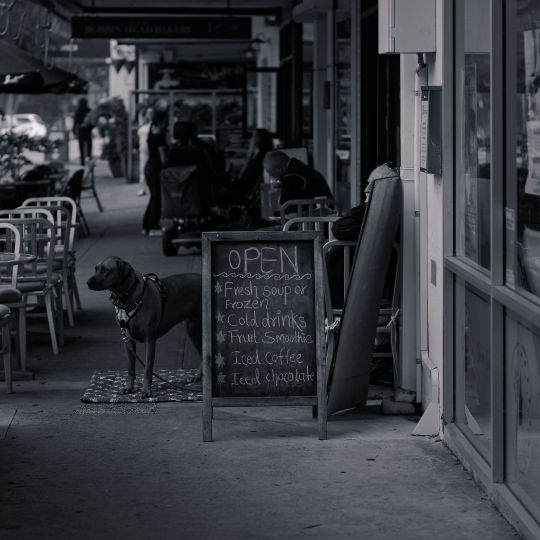
View On WordPress
#Acros#DxO FilmPack Elite 6.1#DxO PhotoLab Elite 5.2.0#Fuji Neopan 100 Acros#Fujifilm X-Pro2#Fujinon XF 56mm f/1.2 R#gold toning#selenium toning#split toning
0 notes
Video
Street (1324)A583 by soyokaze ojisan (そよ風) Via Flickr: Olympus M-1 ZUIKO28mmf3.5 NEOPAN-F ASA80 コニドールスーパー1:1
#japan#kyoto#street#南禅寺#people#bw#blackandwhite#monochrome#analog#Olympus#M-1#OM-1#28mm#film#NEOPAN-F#FUJIFILM#memories#1970s
17 notes
·
View notes
Text

Výhledna
#Minolta XG-M#Minolta MD Rokkor 50mm f/1.4#Fuji Neopan Acros II 100#Analog Photography#Film is Not Dead#B&W#Black and White#film#film photography#analog#original photography#photograpers on tumblr
1 note
·
View note
Text

patrickjoust | flickr | tumblr | IG | prints for sale
…
Mamiya C330 S and Sekor 80mm f/2.8
Fujifilm Neopan 100 Acros developed in Xtol (1:1)
70 notes
·
View notes
Video
Turtle rock at Naritasan Kawagoe Betsuin Hongyoin temple by Hans ter Horst Via Flickr: Camera: Pentax 645NII Lens: Pentax 645 A 150mm f/3.5 Shot on Fuji Neopan Acros 100 at EI 100, developed in HC-110 dilution E for 7 minutes. Agitation: 2 inversions every 30 seconds. Development details on FilmDev
#Kawagoe#acros#japan#Saitama Prefecture#川越市#川越#PENTAX 645NII#Pentax 645 A 150mm f/3.5#filmphotography#filmisnotdead#film#fotografie#acros100#Fuji Neopan Acros 100#fujiacros#ishootfujifilm#成田山川越別院#本行院#monochroom#monochrome#medium format#120 format#roll film#ishootfilm#hoshisato#hans ter Horst#believeinfilm#black and white#Black&White#B&W
0 notes
Photo

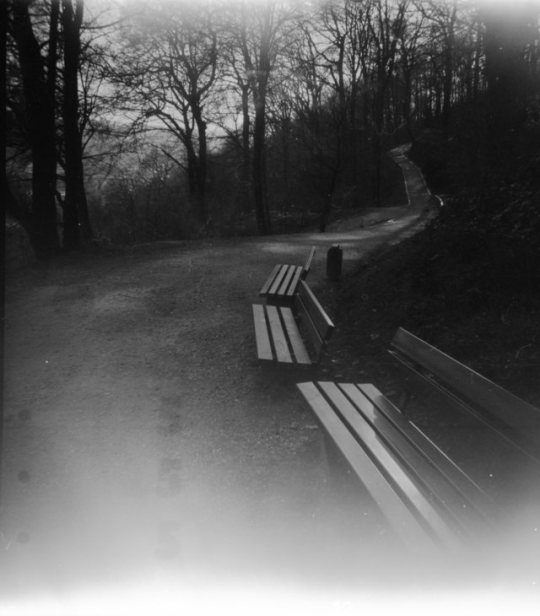
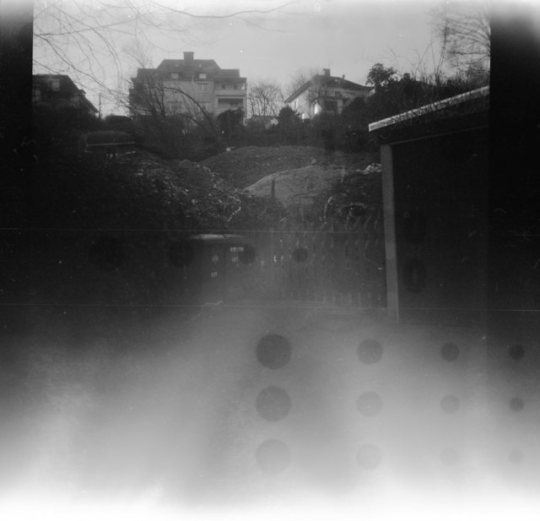

[31mar17] 155/365: a few test shots (diana f+, 55mm, 12o film (fuji neopan acros), scanned negatives)
#anna malina#black and white#photographers on tumblr#original photography#analog#medium format#diana f+#wuppertal#trees#120mm#120 film#fuji neopan acros#iso 100#scan o negative#55mm#365#2017#photography
444 notes
·
View notes
